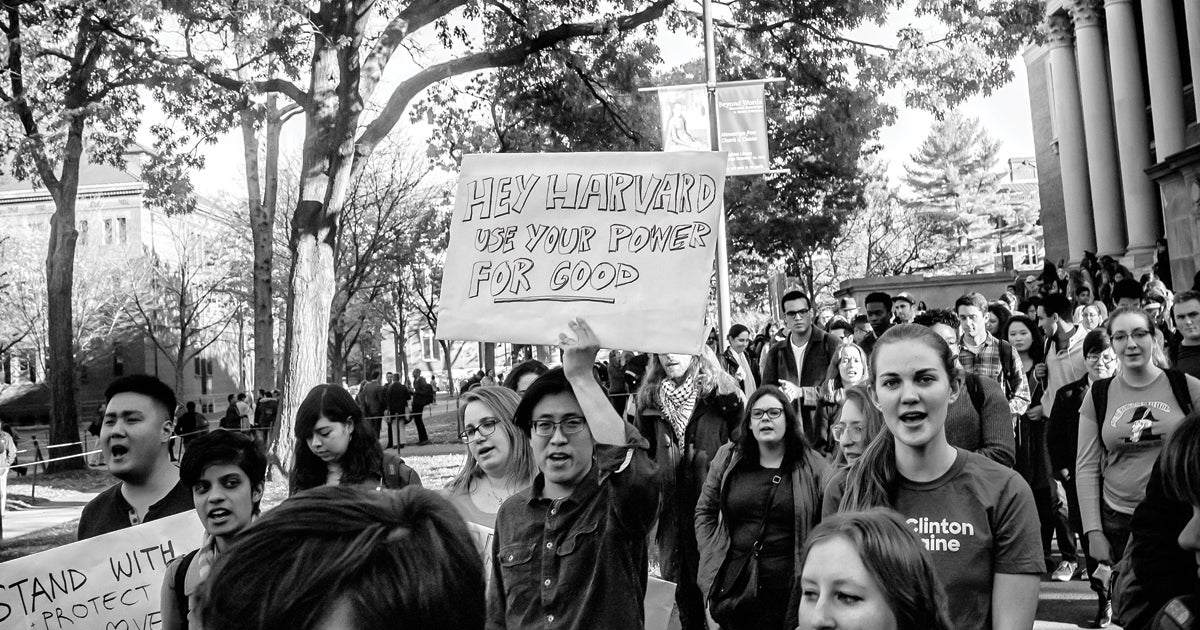
by Jorge Gomez, Senior Writer • 7 min read
For thousands of students, spring break 2020 is looking slightly different than it did in years past.
Many are probably spending some extra time at home, as schools and colleges nationwide extended the customary spring break by a week, or even more, while the nation deals with the current health crisis.
But even though students will enjoy a few extra days of rest, it’s clear that attacks on religious liberty don’t seem to be taking a break.
In fact, in recent weeks, opponents of religious liberty have continued to target students and their right to freely live out their faith.
What’s really worrisome is that anti-faith activists aren’t limiting themselves to the longstanding and usual antics of stripping away the rights of students in our public K-12 schools, or in private, faith-based schools.
Now, they’re ramping up the intensity of violations on religious liberty and more brazenly seeking to shut down religious viewpoints in colleges and universities, where open debate and intellectual discussion of different opinions should be most encouraged.
In a twist of irony, recent attacks have been directed at law schools…the places where many of our nation’s attorneys are trained to defend the Constitution and its ideals, such as religious liberty.
For example, the deceptively-named Military Religious Freedom Foundation recently sent a threatening letter to the Defense Department because the Air Force held an appeals court hearing in the law school of Liberty University (LU), a private faith-based college. The MRFF took their animosity to a new level, referring to LU as a “bastion of odious discrimination” because the school ascribes to a Christian worldview.
While the MRFF’s hostility toward the school’s religious affiliation is evident, what’s more troubling is its understanding (or rather its misunderstanding) of the Constitution. In an almost unbelievable statement, its leadership referred to hosting a government proceeding at the university as being synonymous with…“dropping a nuclear weapon on the Constitution.”
As we’ve seen in its prior attacks, the MRFF’s accusations against religious liberty stem from a ludicrous misreading of America’s founding document as well as legal precedent.
The U.S. Supreme Court has repeatedly held that the government cannot favor the secular over the religious, or vice-versa. A historically accurate interpretation of the Constitution—not the MRFF’s mythical version—means that religiously-affiliated law schools must be treated equally with secular law schools in order to satisfy the neutrality required by the First Amendment.
America’s schools, colleges and universities are no place for censorship. They are where religious diversity and open debate of ideas should thrive.
Donate to help First Liberty reclaim religious liberty for students of all faiths.
And the hostility isn’t just reserved for Christian or religiously-affiliated universities.
The “cancel culture” recently reared its ugly head at Harvard University’s Law School (HLS), where administrators received significant backlash because they announced the school would offer a Religious Freedom Clinic.
HLS expressly made it clear that the clinic was designed to allow students the opportunity to represent people who face restrictions or attacks on their constitutional right to live out their faith. Modeled after a similar clinic at Stanford University, the HLS clinic wasn’t limited to defending people of a particular faith, but was highly inclusive of all religious groups so that students could apply their education outside of the classroom.
Members of the student body (many of them led by LGBTQ activists and backed by the school’s chapter of the American Civil Liberties Union) mounted a staunch opposition, saying the clinic should be outright canceled from taking place on Harvard’s campus.
One would think it’s a “no-brainer” to give future lawyers real-world experience in arguing for America’s First Freedom. Yet, to this day it’s unclear whether Harvard students will be able to participate in the Religious Freedom Clinic, even though the school has allowed 46 other clinics dedicated to civil rights litigation and other practical legal experience.
Although the scale and brazenness of attacks has reached an all-time high, students need to know there is a great hope for victory. Right now, from elementary schools to the lecture halls of our universities, students nationwide are reclaiming their religious liberty.
In fact, just a couple of months ago, a federal court issued a huge victory in favor of a public college student in Green Bay, Wisconsin who was told she couldn’t distribute religious-themed Valentine’s Day cards.
College officials accused Polly Anna Olsen, a paralegal student at Northwest Wisconsin Technical College, of violating school policies because she was handing out cards with Bible verses and other encouraging messages. A campus security officer even prevented her from physically handing out her Valentine’s cards.
However, Olsen did not let that dissuade her and opted to take a stand for her rights. When asked about why she decided to fight, she responded:
“It’s not just my rights, it’s everyone’s rights on campus that have been violated.”
The court’s opinion in this case was clear: “There can be no doubt that in handing out her home-made Valentines to her fellow students, friends, and staff at NWTC, Olsen was engaged in a constitutionally protected form of expression.”
That ruling set an important precedent that can help protect the First Amendment freedoms of thousands of other public college students currently under attack.
And of course, because First Liberty Institute is ready to fight on their behalf, students of faith shouldn’t give way to fear or intimidation. Instead, this is a time when they can stand boldly knowing the law and the Constitution guarantee their right to express their views and to live out their faith on campus.